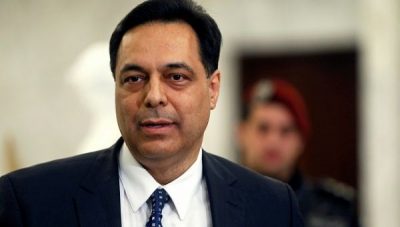Lebanon’s Crises Ballooning as Politicians Bicker over Government Formation

All Global Research articles can be read in 27 languages by activating the “Translate Website” drop down menu on the top banner of our home page (Desktop version).
***
Lebanon’s political, economic and COVID crises are ballooning while politicians continue to bicker over the formation of a government capable of implementing reforms that could deliver $21 billion in financial aid to rescue the country from collapse.
Caretaker Prime Minister Hassan Diab, who resigned last August, has threatened to suspend work to exert pressure on recalcitrant politicians to form the long overdue government. Hizbollah has warned of a social explosion if a new government is not in place soon. Maronite Christian Patriarch Beshara Al Rahi has castigated politicians for the “intentional delay” in establishing a government and said popular protests are justified.
Army chief Joseph Aoun has urged the politicians to resolve Lebanon’s economic crisis quickly while pointing out that his officers and men suffer privation along with the general population. Addressing the political class, he asked, “Where are we headed? What do you intend to do?”
He had no reply from politicians who mismanaged Lebanon’s affairs for decades and have done nothing to tackle its current political, economic, social and COVID crises.
The explosion is already taking place. Lebanese have adopted a new strategy to vent their fury over economic melt-down. Instead of mounting mass protests in central squares in cities and towns, Lebanese are disrupting the movement of people and goods by blocking highways and main roads across the country. The blocking protests have been triggered by the fall in the value of the Lebanese Lira to more than 10,000 to the dollar, driving up the prices of both imported and locally produced essential supplies. While the Lira has hovered around the 8,000 mark for some months, the long-term official rate has been 1,500 to the dollar. To make matters worse salaries have fallen by more than 80 per cent and inflation is running at between 300 and 400 per cent.
The economic and social crises will become more acute if the central bank enacts progressive reductions in subsidies on essential foodstuffs, electricity and fuel. The World Food Programme has warned that this would have “major inflationary repercussions” and impose “an unbearable strain on households” which are already struggling to put food on the table.
If subsidies are ended, the price of bread would triple and the cost fuel would rise 4.5 times. Although financial assistance would be provided to 83 per cent of the population, most Lebanese do not trust the government to deliver monthly payments of $50 for adults and $25 for children. While the World Bank is set to provide $246 million for those suffering extreme proverty, money has a tendency to go astray before reaching the people for whom it is destined.
After Lebanon’s downward economic slide began in mid-2019, Lebanese took to urban streets and squares to call for an end to corruption and mismanagement and the ouster of the sectarian power-sharing regime imposed by France before independence. Tens of thousands joined these largely peaceful protests but the politicians, determined to preserve their paternalist powers and pelf, did not budge: Not even after the horrific explosion in Beirut port that killed more than 200 people and devastated four neighbouring districts.
Appointed last October to form a cabinet of nonpartisan technocrats to deal with the economic crisis and enact reforms, prime minister Saad Hariri awaits presidential approval of his 18 ministers. President Michel Aoun argues Hariri has no authority to dictate who is in his cabinet and insists on key ministries for the Aounist Free Patriotic Movement. Other political factions, naturally, put forward their demands.
Instead of capitulating, Hariri went, as they say in Australia, “walk-about”. He travelled around the region and elsewhere but his absence changed nothing.
COVID vaccinations, which should be dispensed impartially, have even been mismanaged and become politicised. The World Bank provided bankrupt Lebanon with COVID vaccines valued at $34 million to inoculate two million of the six million residents of the country — Lebanese, Palestinians, Syrians and others. The Bank also called for the elderly and health care workers to be first in line for shots which were to be administered at designated locations. Naturally, deputies jumped the queue and the Health Ministry inoculated them in parliament itself, infuriating World Bank officials who threatened to halt to halt funding of the rollout. Lebanon registers 3,000-4,000 cases daily and total infections have reached 400,000 and deaths 5,000. While Lebanon’s self-inflicted travails are largely ignored by the world, Pope Francis, as he wrapped up his historic visit to war-devastated Iraq, promised his next trip will be to Lebanon.
It is significant that the two countries are governed by sectarian regimes imposed by Western occupying powers. France sought to ensure domination of Lebanon by Christians favourable to Paris but two civil wars and constant instability have demonstrated the Lebanese model is a dangerous failure. Nevertheless, in Iraq the US installed a “democratic” Shia fundamentalist government which, ironically, favours Tehran over Washington. In both countries, corruption is rampant and misrule has brought about the collapse of the state. Therefore, it is hardly surprising that, both Lebanese and Iraqis have been rising against sectarian governments since October 2019.
*
Note to readers: please click the share buttons above or below. Forward this article to your email lists. Crosspost on your blog site, internet forums. etc.

